7 Things You Should Never Say to a Car Mechanic (If You Don’t Want to Be Ripped Off)
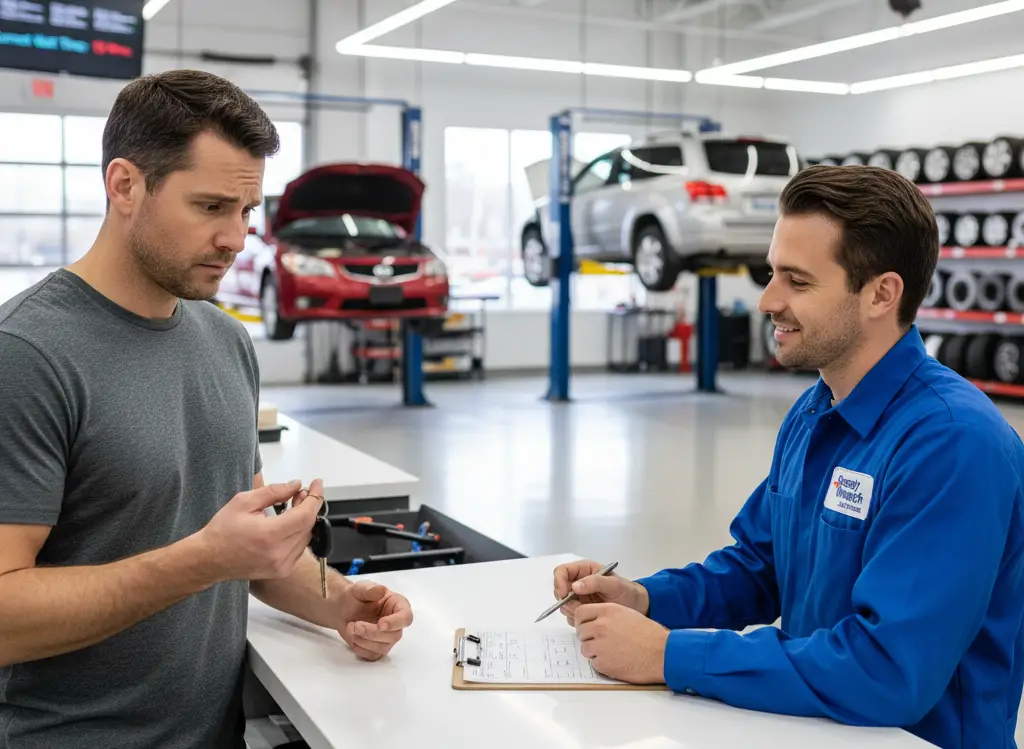
Walking into an auto repair shop can feel a little intimidating. Your car is making a strange sound, you are worried about the cost, and the mechanic holds all the knowledge and tools to fix the problem. It is a situation where many people feel vulnerable. The truth is, most mechanics are honest and hardworking, but just like in any industry, there are a few who may take advantage of the wrong words.
What you say at the service desk can make a big difference in how you are treated and how much you end up paying. Sometimes, innocent phrases can signal to a mechanic that you are willing to spend without question, that you are uninformed, or that you can be easily persuaded into unnecessary add-ons. The good news? With a little awareness, you can communicate more effectively, save money, and walk out feeling confident about your car repair.
Here are seven things you should never say to a car mechanic if you do not want to be ripped off—and what you can say instead.
1. “Just fix whatever is wrong. I don’t care how much it costs.”
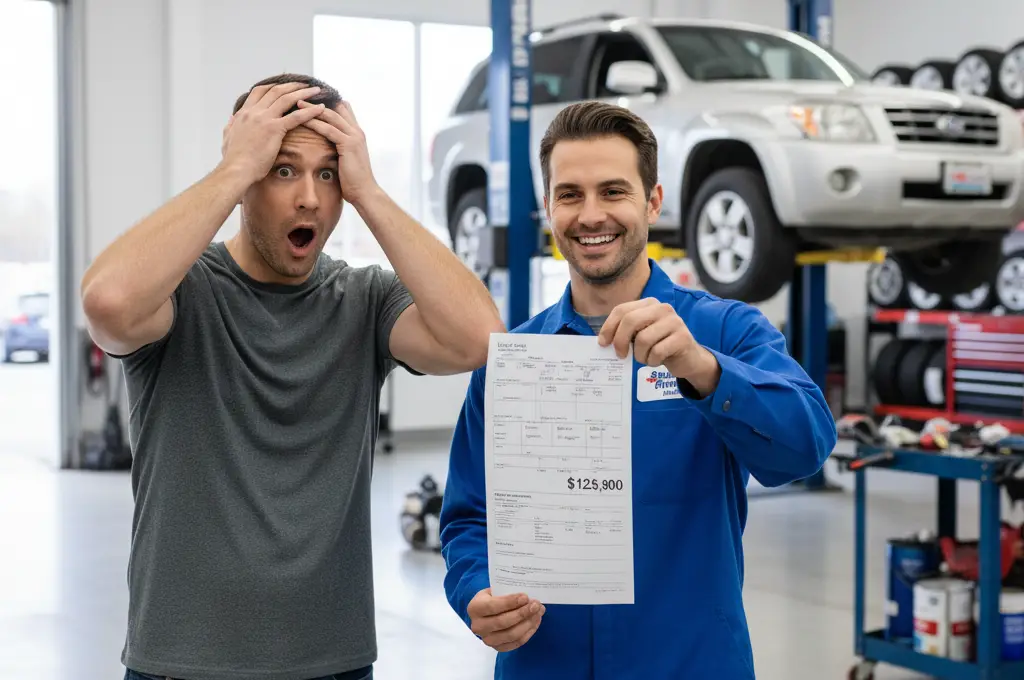
This might sound like you are giving the mechanic permission to do their job, but to the wrong person, it is like handing over a blank check. Saying you do not care about the cost invites extra repairs, inflated labor charges, and maybe even services you do not really need. Instead of leaving it open-ended, ask for a detailed estimate before any work begins. Let them know you want a call for approval if new issues come up. That way, you stay in control and can make informed decisions about what is worth fixing now and what can wait.
2. “I do not know anything about cars. You tell me.”
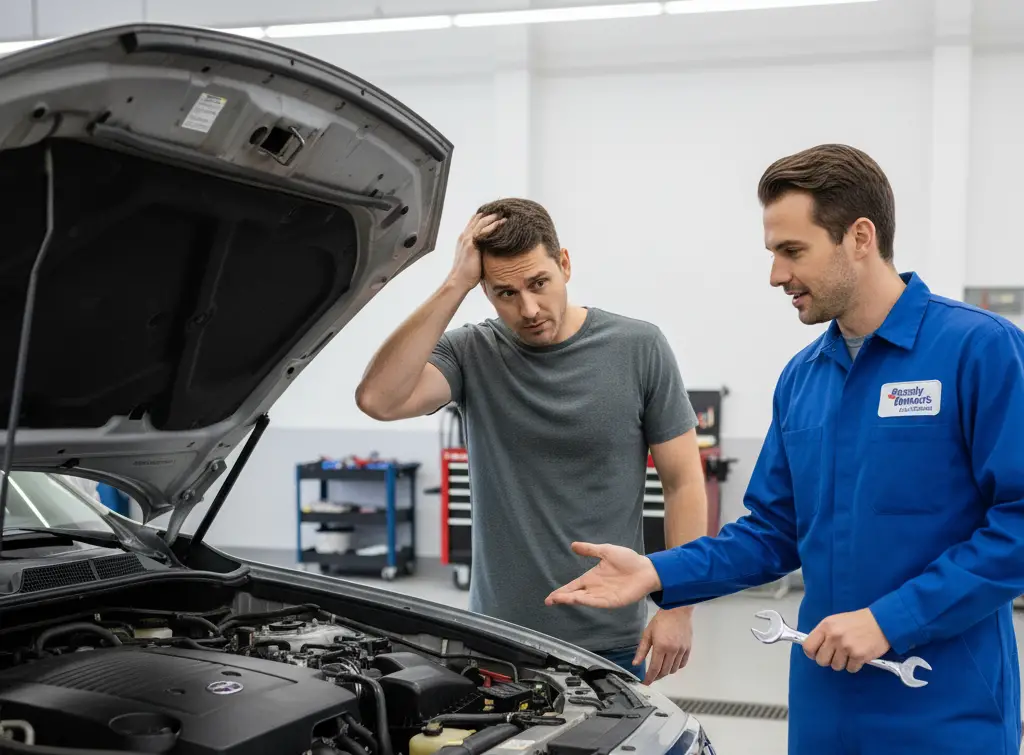
It might feel honest to admit you are clueless about engines and brakes, but it is also like advertising that you are an easy target. Some mechanics may see this as an opportunity to suggest expensive services that sound urgent but really are not. You do not need to pretend you are an expert, but you can describe your car’s symptoms clearly. For example, instead of saying “I don’t know anything,” try “My car makes a squealing noise when I brake” or “There is a burning smell when I drive on the highway.” This shows you are paying attention and makes it harder for someone to exaggerate what needs to be done.
3. “I Googled my problem, and I think it’s this.”
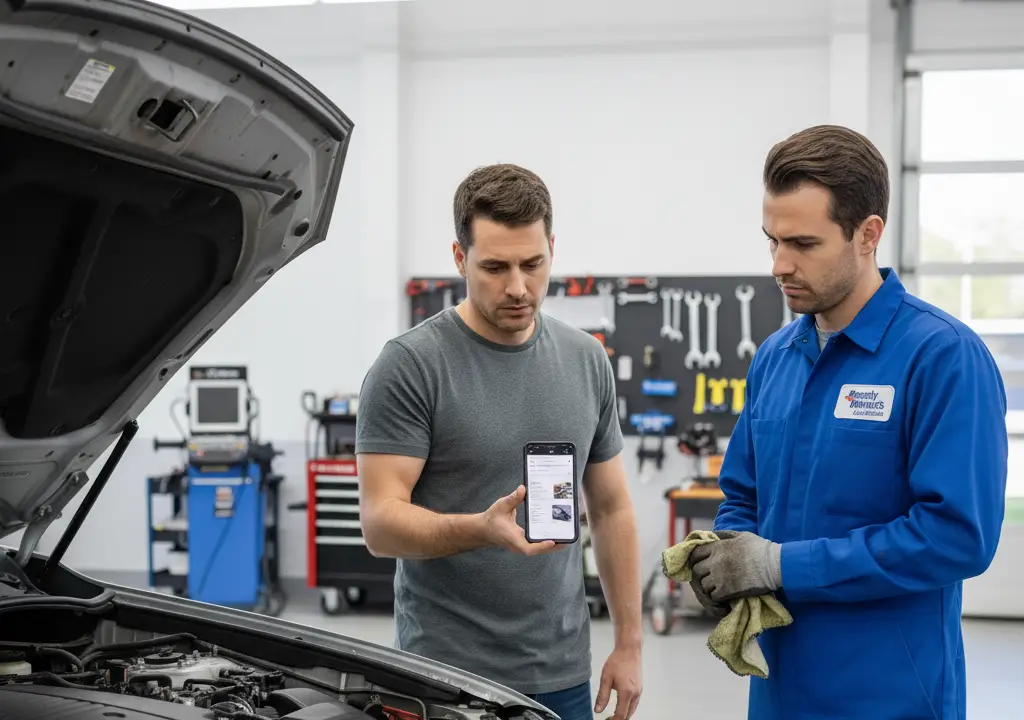
Thanks to the internet, we all have a little “mechanic” in us now. But walking into a shop and announcing your self-diagnosis can rub a professional the wrong way. It can come across as dismissive of their training or as though you are questioning their expertise. A better approach is to say something like, “I read online that it could be the alternator, but I would like your opinion.” This shows that you have done your homework but still respect their knowledge. Mechanics are more likely to work with you when you treat them as the expert rather than the opposition.
4. “I am going on a trip next week. I just need it safe.”
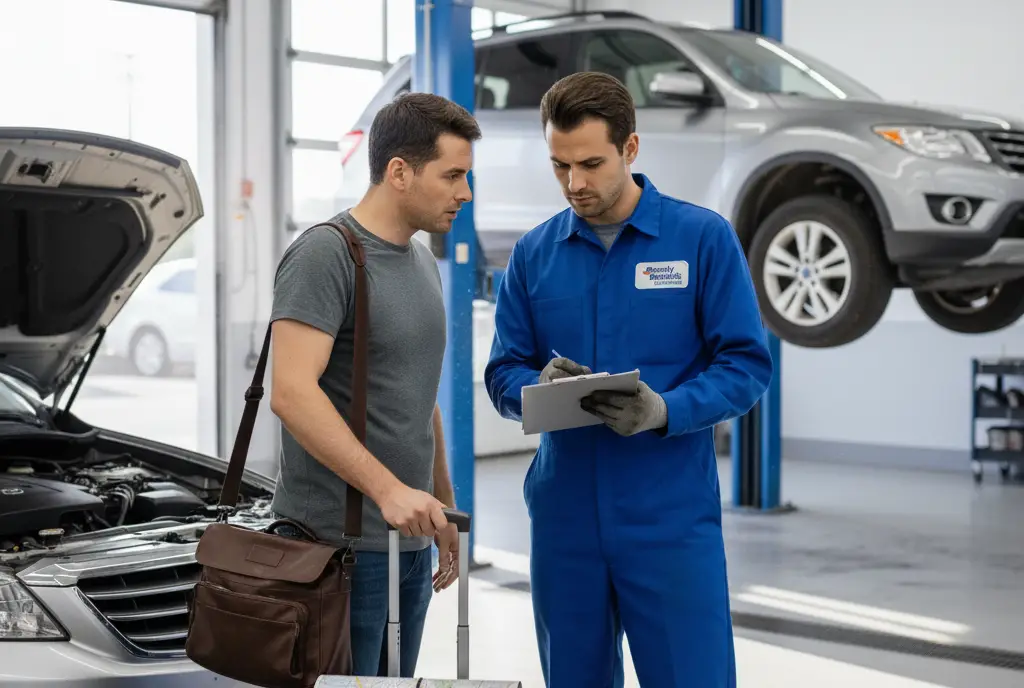
On the surface, this sounds reasonable. You are about to put miles on your car, and you want to make sure nothing goes wrong. But saying you are leaving town can trigger an upsell opportunity. A mechanic may assume you are willing to pay for every possible fix, even the ones that are not urgent, just for peace of mind. Instead, phrase it differently: “Please check the essentials so the car is safe to drive. If you find anything else, let me know before doing the work.” This sets clear boundaries and keeps you from being talked into a laundry list of repairs you might not need.
5. “I cannot afford more than X dollars.”
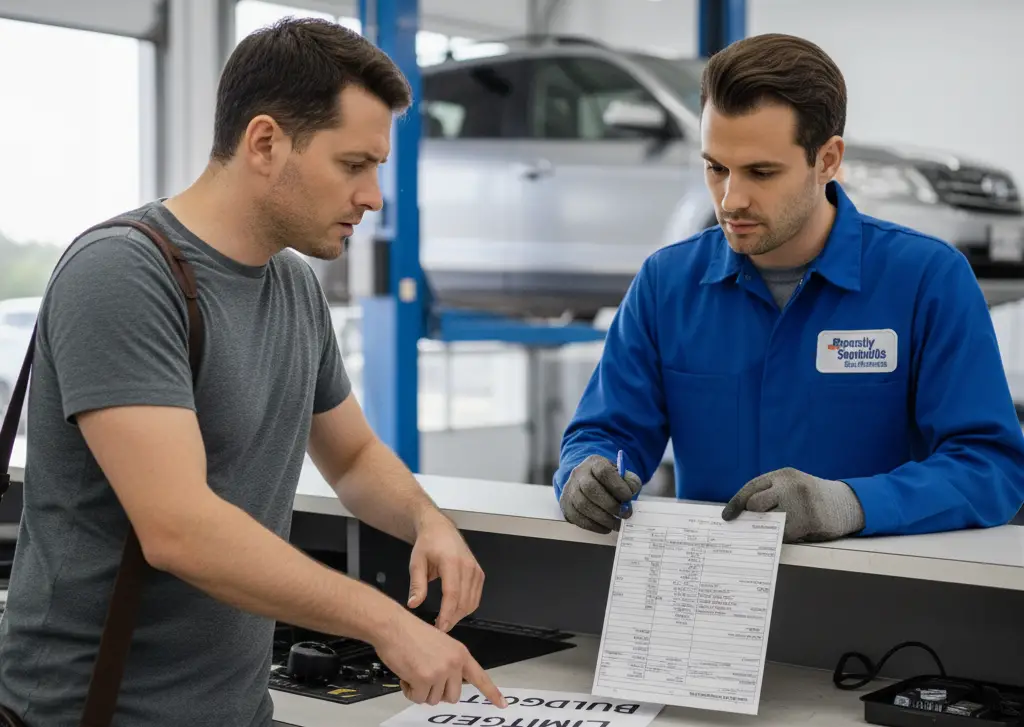
It makes sense to set a budget, but telling the mechanic your absolute maximum up front can backfire. If the shop knows you are capped at a certain number, they may price the job right up to that limit, even if the real cost would have been lower. Or they may cut corners to stay within your stated budget, leaving bigger problems down the road. Instead, say something like, “I am trying to keep costs around X dollars. Can you prioritize what is urgent and let me know what could wait until later?” This puts you in control without locking yourself into a situation that could compromise either your wallet or your car’s health.
6. “Can you just sell me the part and I will install it myself?”
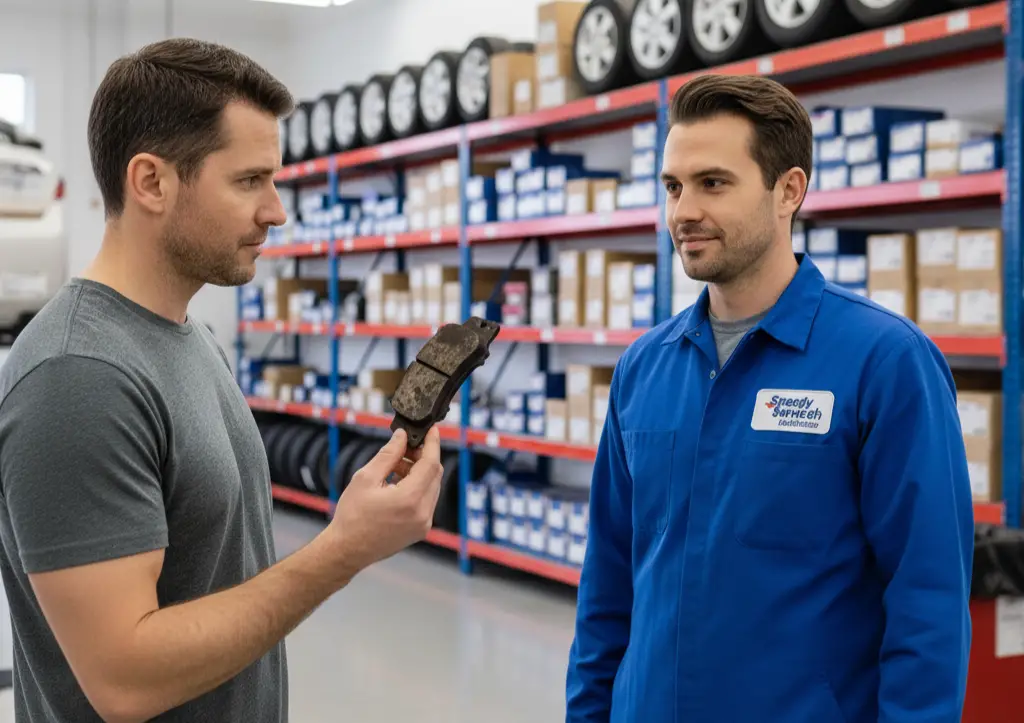
Some people say this hoping to save money on labor, but it is usually a dead end. Many shops will not agree to install customer-supplied parts because of liability issues, warranty concerns, or the risk of incorrect specifications. Plus, part sales are one way repair shops cover their overhead, so they may not be thrilled if you try to cut that out. A smarter move is to ask the mechanic to show you the old part once it is replaced. That way, you can be sure the work was actually done. You can also ask for an itemized quote for both parts and labor, so you know exactly what you are paying for.
7. “That price seems high. Can you lower it?”
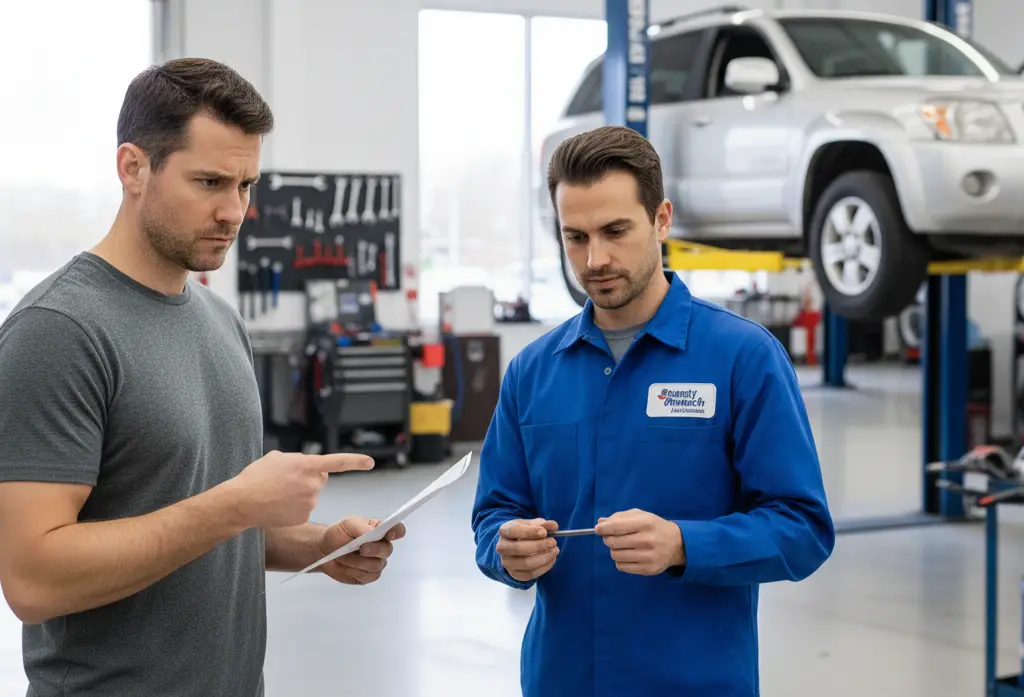
No one likes to feel overcharged, but saying this bluntly can sour the relationship fast. The mechanic may get defensive, and you risk losing their willingness to explain or compromise. Instead of challenging the price head-on, start a conversation. Try asking, “Can you help me understand why the labor cost is what it is?” or “Is there a less expensive option for the part?” You can also ask if it is possible to split the work into phases so you handle the most important repairs first. This shows respect for their expertise while still protecting your wallet.
Final Thoughts

Talking to a mechanic can feel tricky, especially when you are worried about cost and do not understand the technical details. But you do not need to be a car expert to protect yourself from being overcharged. What matters most is how you communicate. Avoid phrases that make you sound like an open wallet or completely in the dark, and instead focus on being clear, respectful, and firm about your expectations.
Remember, most mechanics genuinely want to help you keep your car running safely. The key is building trust through honest questions and informed choices. Ask for written estimates, approve additional work before it happens, and do not be afraid to get a second opinion for major repairs.
At the end of the day, your car is one of your biggest investments. The way you talk about it in the shop can be just as important as the work done under the hood. A little confidence, the right questions, and a few smart substitutions in your wording can save you money and stress—and keep your relationship with your mechanic on the right track.
Leave a Reply